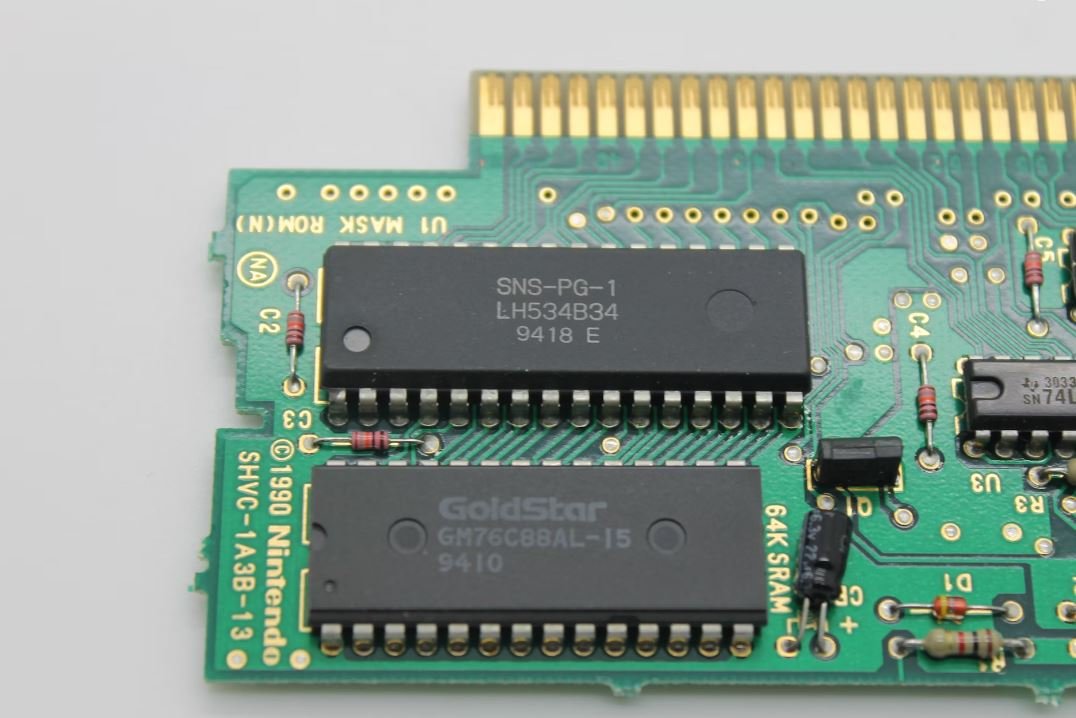When to Buy an Air Purifier
Are you considering purchasing an air purifier for your home or office? With increasing concerns about air pollution and the need for cleaner air, air purifiers have become popular in recent years. Understanding when it’s the right time to invest in an air purifier can help you make an informed decision. In this article, we will discuss the key factors to consider before buying an air purifier.
Key Takeaways:
- Air purifiers are beneficial for individuals with respiratory conditions.
- High levels of air pollution or localized air quality issues may require an air purifier.
- Allergies and asthma can be alleviated by using an air purifier.
- Pets and smokers can contribute to poor indoor air quality and may warrant the use of an air purifier.
- Consider the size and features of an air purifier based on the room you plan to use it in.
- Maintenance and filter replacement costs should be factored into the overall expense of owning an air purifier.
When to Consider Buying an Air Purifier
If you or someone in your household suffers from respiratory conditions such as allergies or asthma, *investing in an air purifier can significantly improve air quality* and mitigate symptoms. Air purifiers are designed to remove airborne particles, such as pollen, dust mites, pet dander, and mold spores, that are known triggers for respiratory issues.
Allergies can be particularly troublesome during high pollen seasons or if you live in an area with a high concentration of allergens. *An air purifier can help remove these allergens from the air, providing relief for allergy sufferers*.
In urban areas, air pollution can be a major concern. If you live in a city with high levels of pollution, *an air purifier can be an effective way to reduce your exposure to harmful pollutants* and protect your health. Similarly, if you live in an area affected by wildfires, an air purifier can help filter out smoke particles and improve the air quality indoors.
Choosing the Right Air Purifier
Not all air purifiers are created equal, and choosing the right one depends on your specific needs. Consider the following factors:
- Room size: Determine the square footage of the room where you intend to use the air purifier. Different models are designed for different room sizes, so selecting the appropriate size ensures optimal performance.
- Filter types: Look for air purifiers with *HEPA (High-Efficiency Particulate Air) filters*, as they can capture particles as small as 0.3 microns, including common allergens and pollutants.
- Noise level: If you plan to use the air purifier in your bedroom or office, consider one that operates quietly to avoid interruptions or disturbances.
- Additional features: Some air purifiers offer features such as programmable timers, air quality sensors, or remote controls. Evaluate if these features align with your preferences and needs.
When considering purchasing an air purifier, it’s essential to factor in maintenance and ongoing costs. Most air purifiers require regular filter replacements to maintain their efficiency. Make sure to check the replacement filter cost and lifespan to estimate the long-term expense of owning an air purifier.
Air Purifier Effectiveness: What You Need to Know
While air purifiers can help improve indoor air quality, it’s essential to understand their limitations. Keep in mind the following points:
- Air purifiers are more effective in enclosed spaces, so their impact may vary in larger or open areas.
- An air purifier can reduce, but not eliminate, all contaminants in the air. Regular cleaning and proper ventilation are still important for maintaining clean indoor air.
- It is recommended to run the air purifier continuously to maintain optimal air quality. Turning it off for extended periods may reduce its effectiveness.
Air Purifier Recommendations by Room Size
| Room Size | Ideal Air Purifier Coverage |
|---|---|
| Small Room (up to 299 sq.ft) | 150 sq.ft – 200 sq.ft |
| Medium Room (300 sq.ft – 699 sq.ft) | 250 sq.ft – 400 sq.ft |
| Large Room (700 sq.ft – 1,299 sq.ft) | 500 sq.ft – 700 sq.ft |
| Extra Large Room (1,300 sq.ft or more) | 750 sq.ft – 1,000 sq.ft |
In conclusion, *air purifiers can greatly improve indoor air quality* and are particularly beneficial for individuals with respiratory conditions, allergies, or living in polluted environments. Choosing the right air purifier involves considering room size, filter types, additional features, and maintenance costs. Keep in mind that while air purifiers are effective in reducing airborne particles, they are not a substitute for proper cleaning and ventilation.

Common Misconceptions
Misconception: Air purifiers are only necessary for people with allergies
One common misconception is that air purifiers are only needed for individuals with allergies. However, air purifiers can benefit anyone, regardless of whether they have allergies or not. Air purifiers help to remove pollutants, such as dust, pet dander, and mold spores, from the air, improving overall air quality and reducing the risk of respiratory issues. Even individuals without allergies can benefit from cleaner air.
- Air purifiers reduce the risk of respiratory issues for all individuals.
- Cleaner air can lead to better overall health and well-being.
- Even individuals without allergies can experience improvements in their breathing comfort.
Misconception: Air purifiers eliminate all indoor odors
Another misconception is that air purifiers completely eliminate all indoor odors. While air purifiers can help to reduce odors, they are not designed to eliminate strong odors completely. Air purifiers primarily target and remove airborne particles and pollutants from the air, rather than odor-causing molecules. To effectively deal with persistent odors, it may be necessary to identify and address the source of the odor directly.
- Air purifiers can help reduce indoor odors, but they may not eliminate strong smells.
- Identifying and addressing the source of odors is essential for a long-term solution.
- Air fresheners or other odor-specific products may be more effective in dealing with some odors.
Misconception: Air purifiers are noisy and disrupt sleep
Many people believe that air purifiers are noisy and disruptive when trying to sleep. While some air purifiers may produce a certain level of noise, many modern models are specifically designed to operate quietly. When selecting an air purifier, it is important to consider the noise levels mentioned in the product specifications. Many air purifiers also come with sleep mode settings or timers to minimize disruption during sleeping hours.
- Modern air purifiers are designed to operate quietly.
- Product specifications often mention noise levels to help you choose a quieter option.
- Sleep mode settings or timers can be utilized to minimize any potential disruptions during sleep.
Misconception: Air purifiers are expensive to operate
Some people assume that air purifiers are expensive to operate due to ongoing filter replacements and increased energy consumption. While it is true that filters may need regular replacements, the cost and frequency of filter changes vary depending on the model and usage. Additionally, many newer air purifiers come with energy-efficient features, allowing them to run constantly without a significant impact on electricity bills. It is essential to assess the long-term costs and energy efficiency of an air purifier before making a purchase.
- The cost of filter replacements varies depending on the model and usage.
- Newer air purifiers often include energy-efficient features to reduce energy consumption.
- Long-term costs and energy efficiency should be considered before purchasing an air purifier.
Misconception: Air purifiers are a substitute for proper ventilation
One misconception is that air purifiers can completely replace the need for proper ventilation. While air purifiers can help improve air quality, they are not a substitute for proper fresh air circulation in a space. Ventilation is crucial for removing pollutants and bringing in fresh outdoor air. Air purifiers can complement proper ventilation by further filtering the indoor air, but they should not be relied upon solely to provide adequate indoor air quality.
- Air purifiers are not a replacement for adequate ventilation.
- Proper ventilation is essential for removing pollutants and introducing fresh air.
- Air purifiers can supplement ventilation by further filtering indoor air.

The Benefits of Using an Air Purifier
With rising concerns about indoor air quality and the potential presence of pollutants, many people are considering buying an air purifier for their homes. In this article, we explore the various reasons why investing in an air purifier might be a wise decision. The importance of clean indoor air cannot be understated, and the data presented in the following tables further emphasize the advantages of using an air purifier.
Relative Levels of Common Household Air Pollutants
Air purifiers can effectively remove a wide range of pollutants from the air. The table below shows the relative levels of common household air pollutants present in different spaces.
| Air Pollutant | Living Room | Bedroom | Kitchen |
|---|---|---|---|
| Pollen | High | Moderate | Low |
| Dust Mites | Moderate | High | Low |
| Pet Dander | Moderate | High | Moderate |
| Mold Spores | Low | Moderate | High |
Harmful Effects of Indoor Air Pollution
The presence of indoor air pollutants can have detrimental effects on our health. The following table highlights some of the health issues caused by poor indoor air quality.
| Health Issue | Associated Symptoms |
|---|---|
| Asthma | Wheezing, coughing, shortness of breath |
| Allergies | Sneezing, itching, nasal congestion |
| Respiratory Infections | Chest congestion, sore throat, cough |
| Headaches | Migraines, sinus headaches |
| Eye Irritation | Redness, itching, watering |
Key Considerations for Air Purifier Purchases
Selecting the right air purifier requires careful consideration of various factors, as outlined in the table below.
| Factor | Description |
|---|---|
| CADR Rating | Clean Air Delivery Rate, measure of purifier’s efficiency |
| Filter Type | HEPA, activated carbon, electrostatic, etc. |
| Noise Level | Operating sound produced by the purifier |
| Room Size | Recommended square footage coverage |
| Energy Consumption | Power usage and associated costs |
The Impact of Air Purifiers on Sleep Quality
Air purifiers can contribute to a better night’s sleep by promoting improved air quality. The table below depicts the impact of air purifiers on sleep quality.
| Sleep Quality Indicator | With Air Purifier | Without Air Purifier |
|---|---|---|
| Sleep Duration | Longer | Shorter |
| Sleep Disruptions | Reduced | Increased |
| Snoring Frequency | Decreased | Inconsistent |
| Breathing Difficulties | Lessened | Pronounced |
Cost Savings Comparison
Investing in an air purifier can lead to potential cost savings over time. The following table compares the costs associated with an air purifier to those of managing health issues caused by poor indoor air quality.
| Cost Comparison | Air Purifier | Health Management |
|---|---|---|
| Initial Investment | $$ | $$$ |
| Maintenance | $ | $$$ |
| Medication | $ | $$$ |
| Doctor Visits | $ | $$$ |
Effectiveness of Different Air Purifier Technologies
Various air purifier technologies offer different levels of effectiveness in removing pollutants from the air. The table below rates the efficiency of specific purifier technologies.
| Purifier Technology | Efficiency Rating |
|---|---|
| HEPA Filters | ★★★★★ |
| Activated Carbon | ★★★☆☆ |
| UV-C Light | ★★☆☆☆ |
| Ionic Filters | ★☆☆☆☆ |
Common Triggers for Allergies and Asthma
Airborne allergens can negatively affect individuals with allergies and asthma. The following table presents common triggers that air purifiers can help eliminate.
| Allergen | Allergic Reactions |
|---|---|
| Pollen | Sneezing, runny nose, itchy eyes |
| Dust Mites | Coughing, wheezing, nasal congestion |
| Mold Spores | Nose and throat irritation, coughing |
| Pet Dander | Skin rashes, itchy throat, watery eyes |
Air Purifiers as Odor Eliminators
Unpleasant odors can be effectively reduced or eliminated using air purifiers equipped with odor-fighting technologies. The table below compares the effectiveness of these technologies in eliminating different odors.
| Odor Type | Ozone Generators | Activated Carbon Filters | UV-C Light |
|---|---|---|---|
| Cooking Odors | ★☆☆☆☆ | ★★★★☆ | ★☆☆☆☆ |
| Pet Odors | ★★★☆☆ | ★★☆☆☆ | ★☆☆☆☆ |
| Cigarette Smoke | ★★★☆☆ | ★★★★☆ | ★☆☆☆☆ |
| Moldy Smells | ★★☆☆☆ | ★★★★☆ | ★☆☆☆☆ |
Concluding Remarks
Investing in an air purifier can greatly improve the quality of the air we breathe indoors. As the tables have demonstrated, air purifiers effectively remove common pollutants, reduce health risks associated with poor air quality, contribute to better sleep, and can even lead to cost savings in the long run. With the multitude of air purifier options available, it’s important to consider specific needs and preferences, such as the size of the space, desired features, and budget, when making a purchase decision. By doing so, individuals can create a healthier living environment and enjoy the benefits of clean indoor air.
Frequently Asked Questions
What is an air purifier?
An air purifier is a device that helps remove airborne particles, pollutants, and allergens from the air, resulting in cleaner and healthier indoor air quality.
How does an air purifier work?
Air purifiers typically utilize a combination of filters and fans to circulate and purify the air. The filters capture airborne particles and pollutants while the fans draw in the air and push it through the filters, trapping contaminants and releasing clean air back into the room.
Do I need an air purifier?
Whether you need an air purifier depends on various factors such as your location, indoor air quality, presence of allergies or respiratory conditions, and the level of pollutants in your home. If you are concerned about the air quality in your living space, an air purifier can be beneficial.
When should I consider buying an air purifier?
You should consider buying an air purifier if you experience allergies, asthma, or respiratory issues. Additionally, if you live in an area with high levels of pollution, or if you have pets or frequently use chemicals indoors, an air purifier can help improve the air quality.
What are the benefits of using an air purifier?
Using an air purifier can provide several benefits including the reduction of allergens, dust, pet dander, smoke, and other airborne particles. It may also help alleviate symptoms of allergies and provide relief for those with respiratory conditions.
Can air purifiers remove odors?
Yes, certain air purifiers are designed to remove odors by utilizing additional filters or technologies such as activated carbon or ozone generators. These specialized devices can help eliminate unpleasant smells caused by cooking, pets, smoke, or other sources.
How do I choose the right air purifier for my needs?
When choosing an air purifier, consider factors such as the size of the room, specific air quality concerns, noise levels, maintenance requirements, and the types of filters or technologies used. It’s also helpful to read reviews and consult with experts to ensure you select the most suitable option.
What are the different types of air purifiers available?
There are several types of air purifiers available, including HEPA (High-Efficiency Particulate Air) filters, activated carbon filters, UV (Ultraviolet) germicidal irradiation, ozone generators, and electrostatic precipitators. Each type has its own advantages and target specific pollutants.
How often should I replace the filters in my air purifier?
The frequency of filter replacement depends on the specific purifier and its usage. Generally, it is recommended to replace the filters every 6 to 12 months or as indicated by the manufacturer. Some purifiers have indicator lights that notify you when it’s time to replace the filters.
Can I use an air purifier while sleeping?
Yes, most air purifiers are designed to operate quietly, allowing you to use them while sleeping without disturbance. However, it’s important to consider noise levels specified by the manufacturer and choose a model suitable for use in bedrooms or other sleeping areas.




